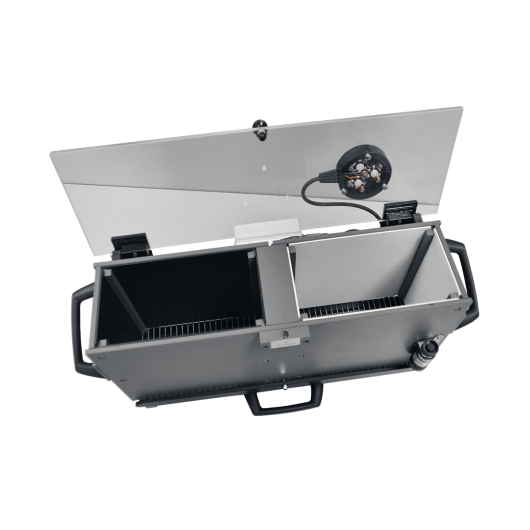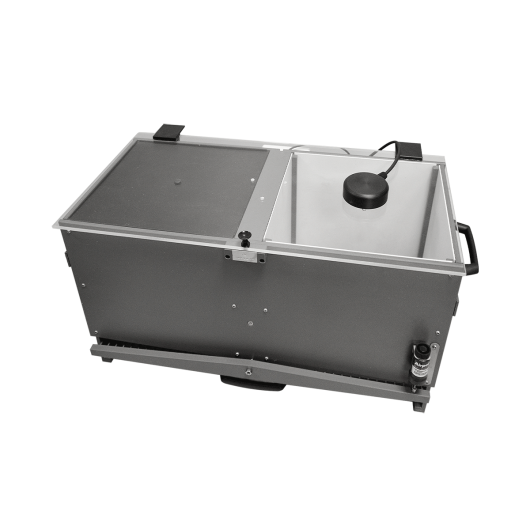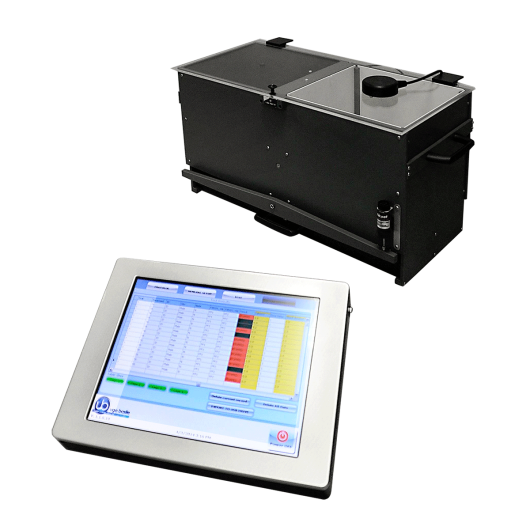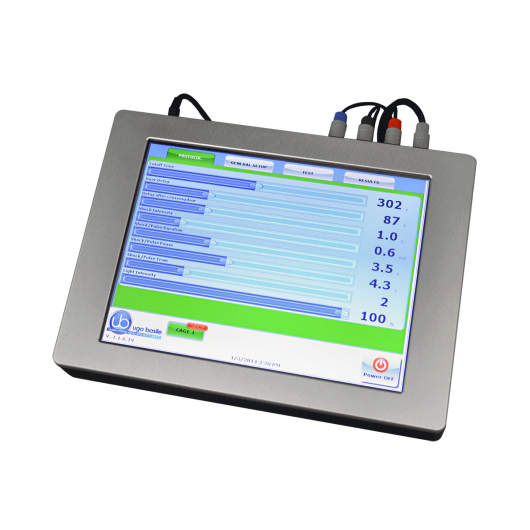



Passive Avoidance - step through - new model, for rats and mice
Features
- Speed adjustable in the range
3-80 RPM, in steps of 1 RPM - Constant speed, ramp (accelerating), multi-step ramp (NEW!)
- New trip boxes
- Embedded USB memory stick
- Brand new Software
Benefits
- Useful in a variety of tests
- Extreme versatility
- To enclose the animals, stainless-steel to ease sterilization
- Does not required connection to PC (software included) to store and transfer data
- User friendly, included as standard, enables setting up the experiment and managing the results from PC or 4"3 touch-screen
Application
The “Rota-Rod” technique has been originated by a 1957 paper of N.W. Dunham and T.S. Miya (see paragraph 9.1-Method Papers) and has proved to be of great value in research involving screening of drugs which are potentially active on motor co-ordination.
Ugo Basile designed the first industrial RotaRod in the 1960s. The name we coined soon became so popular, now everybody knows this instrument as RotaRod!
The Rota-Rod is the reference test to screen drugs potentially active, or having side effects, on motor coordination.
When a rat falls off its cylinder section onto the trip-box below, the plate boxes and the corresponding magnetic switch is activated, thereby recording the animal endurance time in seconds.
The display shows the actual angular speed (RPM). At the end of a run, the display shows for each animal the running time, the rotation mode and the rotation speed at the time the animal fell off, combined with information preset by the user.
Method paper
- N.W. Dunham & T.S. Miya: “A Note on a Simple Apparatus for Detecting Neurological Deficit in Rats & Mice“ J. Am. Pharmaceut. Assoc., Scientific Edit., XLVI: No. 3, 1957
- B.J. Jones & D.J. Roberts: “The Quantitative Measurement of Motor Incoordination in Naive Mice Using an Accelerating Rotarod“ J. Pharm. Pharmac.: 20: 302-304, 1968




